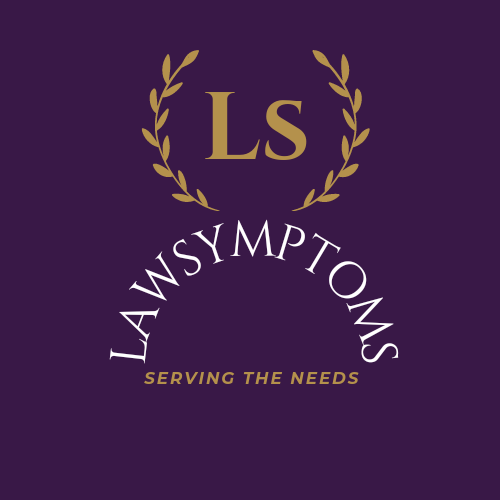All you need to know about the syllabus of CLAT 2024 & Important Books to get a seat in an NLU
- lawsymptoms

- Jun 9, 2023
- 3 min read
BY HARSH GUPTA, FOUNDER, LAWSYMPTOMS!
The syllabus for CLAT 2024 may vary slightly from the previous years, but generally, the exam covers the following subjects:
1. English Language: This section tests your proficiency in English. It includes comprehension passages, grammar, vocabulary, sentence correction, and error detection.
2. General Knowledge and Current Affairs: This section evaluates your awareness of current events, general knowledge, and static GK. It may include questions on national and international affairs, sports, awards, government schemes, history, geography, etc.
3. Mathematics: This section assesses your mathematical skills and includes topics such as algebra, profit and loss, percentages, time and work, time-speed-distance, number system, geometry, data interpretation, etc.
4. Legal Aptitude: This section tests your understanding of legal concepts, principles, and reasoning abilities. It may include questions on legal propositions, law and judiciary, contracts, legal maxims, constitution, torts, criminal law, etc.
5. Logical Reasoning: This section assesses your analytical and logical reasoning skills. It may include questions on syllogisms, analogies, logical sequences, blood relations, coding-decoding, puzzles, etc.
6. Additional Topics: CLAT may sometimes include additional sections or topics such as Constitutional Law, International Law, Legal GK, etc. It's essential to stay updated with any changes in the syllabus announced by the conducting body.
To ensure your preparation is on track, refer to the official CLAT website or the information bulletin released for CLAT 2024. It will provide you with the most accurate and up-to-date information regarding the syllabus and exam pattern for the specific year.
Keep in mind that the syllabus is comprehensive, and it is crucial to have a thorough understanding of each subject. Devote ample time to each section, practice with sample papers and previous years' question papers, and consider joining a coaching institute or online course for additional guidance and study material.
Remember, the syllabus for CLAT may have specific variations, so it's important to keep an eye out for any official announcements or updates by the organizing body.
Here are some recommended books for CLAT 2024 preparation:
1. English Language:
- Word Power Made Easy by Norman Lewis
- High School English Grammar and Composition by Wren & Martin
- Objective General English by S.P. Bakshi
2. General Knowledge and Current Affairs:
- Manorama Yearbook
- Lucent's General Knowledge
- Pratiyogita Darpan
3. Mathematics:
- Quantitative Aptitude by R.S. Aggarwal
- Fast Track Objective Arithmetic by Rajesh Verma
- Quantitative Aptitude for Competitive Examinations by Abhijit Guha
4. Legal Aptitude:
- Legal Awareness and Legal Reasoning by A.P. Bhardwaj
- Universal's Guide to CLAT and LL.B. Entrance Examination by Manish Arora
- Legal Aptitude for the CLAT and other Law Entrance Examinations by B.S. Sijwali and A. Sijwali
5. Logical Reasoning:
- Analytical Reasoning by M.K. Pandey
- A Modern Approach to Verbal & Non-Verbal Reasoning by R.S. Aggarwal
- Logical Reasoning for the CLAT and other Law Entrance Examinations by R.K. Gupta
6. Previous Years' Question Papers:
- Universal's CLAT Solved Papers by Gaurav Mehta
- 10 Years CLAT & AILET (2008-2017) Topic-wise Solved Papers by Disha Experts
Apart from these books, it is also recommended to refer to the official CLAT study material, online resources, and mock test series provided by reputed coaching institutes or online platforms. These resources are specifically designed to cater to the needs of CLAT aspirants and provide comprehensive coverage of the exam syllabus.
Remember to regularly practice with sample papers and previous years' question papers to get a better understanding of the exam pattern and improve your time management skills.
Additionally, it is essential to stay updated with current affairs by reading newspapers, magazines, and online news portals regularly.
Keep in mind that the choice of books may vary depending on your learning style and preferences. It is advisable to choose a few standard books and focus on understanding concepts rather than collecting too many resources.






Comments